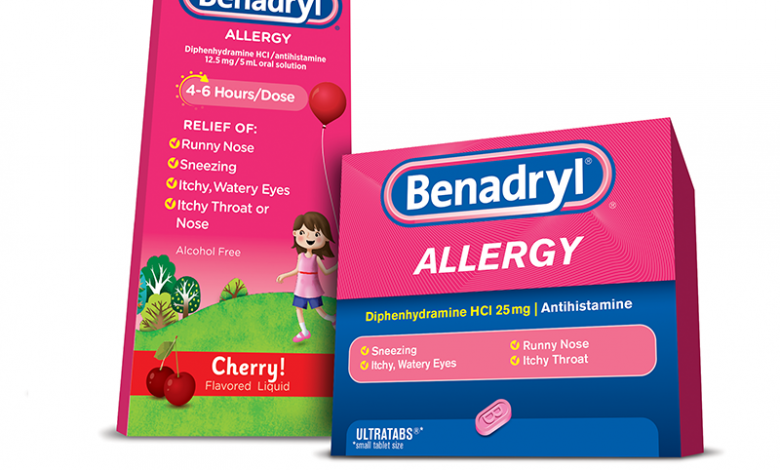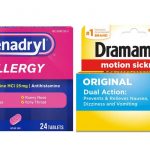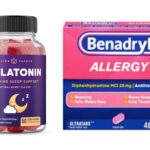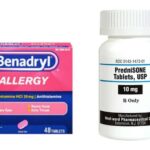Is Benadryl Addictive?

The word “addiction” is derived from a Latin term for “enslaved by” or “bound to.” Anyone who has struggled to overcome an addiction—or has tried to help someone else to do so—understands why.
Addiction exerts a long and powerful influence on the brain that manifests in three distinct ways: craving for the object of addiction, loss of control over its use, and continuing involvement with it despite adverse consequences.
An addictive drug is one that you cannot stop taking once you have started. Addiction involves craving for something intensely, loss of control over its use, and continuing involvement with it despite adverse consequences. Addiction changes the brain, first by subverting the way it registers pleasure and then by corrupting other normal drives such as learning and motivation. Although breaking an addiction is tough, it can be done.
What is Benadryl?
Benadryl (diphenhydramine) is a brand-name, over-the-counter medication that’s classified as an antihistamine. It’s used to help relieve symptoms of hay fever (seasonal allergies), other allergies, and the common cold, as well as itchy skin due to insect bites, hives, and other causes.
In 1946, Benadryl was approved by the Food and Drug Administration (FDA) for prescription use. In the 1980s, it was approved as an over-the-counter medication.
Benadryl is effective for decreasing itchy skin from hives. It’s often considered a first-choice treatment for hives. But although it’s effective for decreasing symptoms of seasonal allergies, Benadryl isn’t often used for this purpose. This is due to side effects such as sleepiness.
Benadryl comes in many different forms. Some are oral (taken by mouth), and some are topical (applied to the skin). Examples include:
- oral tablets
- oral liquid-filled capsules (liqui-gels)
- oral chewable tablets
- oral liquid solution
- topical cream
- topical gel
- topical spray
- topical stick
Benadryl is an over-the-counter antihistamine that’s used to help relieve symptoms of hay fever, other allergies, and the common cold, as well as itchy skin caused by insect bites, hives, and other causes. Not all of these uses are recommended by the FDA or by medical experts.
Is Benadryl Addictive?
No, Benadryl is not an addictive medication. However, you can develop a psychological dependence on Benadryl making it difficult to function normally without taking the Benadryl. The body’s increased tolerance to the drug makes the body demand more than the initial dose, making a person take more of the Benadryl. The user constantly feels the need to use Benadryl to feel euphoric and relaxed.
Benadryl abuse is common among those who use it for sleep. The fear that they won’t be able to get to sleep without it, or remain asleep for the entire night compels them to always use the drug. Over time, a person who takes Benadryl may find that the original dose may not be enough to help them fall asleep as quickly as before, or that they are waking during the night. This indicates that the body has become more tolerant of the drug and a dependency has formed. The person then takes more of the drug to achieve the desired effect of falling asleep or duration and state of rest.
Abuse of Benadryl may be difficult to identify; overdose symptoms are similar to acute psychosis and often prompt hospitalization, which may precipitate unintentional withdrawal from the anticholinergic agent, symptoms of which are nonspecific and overlap with many other conditions.
Symptoms of Benadryl abuse and addiction may include:
• Functioning Decline: Important social, occupational, or recreational activities are given up or reduced because of Benadryl abuse
• Increased Use: Benadryl is often taken in larger amounts than the individual intended
• Loss of Control: The individual is persistently unsuccessful in efforts to cut down on Benadryl’s use
• Loss of Time: A lot of time is spent in activities necessary to obtain, use, and recover from the effects of Benadryl abuse
• Tolerance: A need for increased amounts of Benadryl to achieve intoxication or diminished effect with continued use of the same amount of Benadryl
• Withdrawal: Experiencing withdrawal symptoms such as insomnia, irritability, and physical discomfort
Symptoms of Benadryl Overdose
An overdose is a serious medical condition that occurs when an individual receives too much of a substance. Overdoses can be fatal if immediate medical attention is not sought. Benadryl can lead to an overdose when taken in large amounts.
Symptoms of Benadryl overdose include the following:
• Agitation
• Blurred vision
• Delirium
• Depression
• Drowsiness
• Dry mouth
• Enlarged pupils
• Hallucinations (seeing or hearing things that aren’t there)
• Inability to urinate
• Increased sleepiness
• Low blood pressure
• Nausea
• Nervousness
• Rapid heartbeat
• Ringing in the ears
• Seizures
• Tremor
• Very dry eyes
• Vomiting





